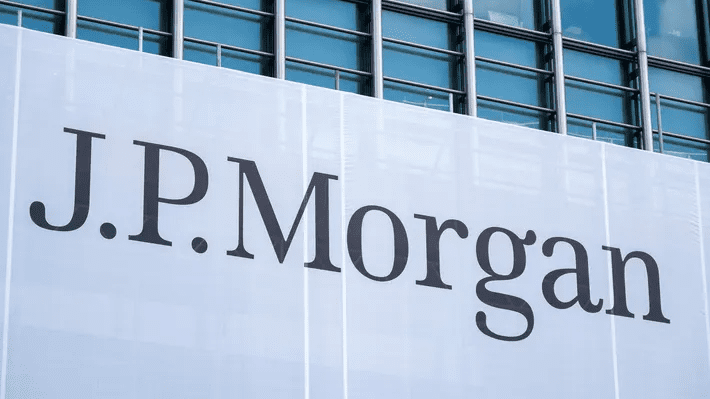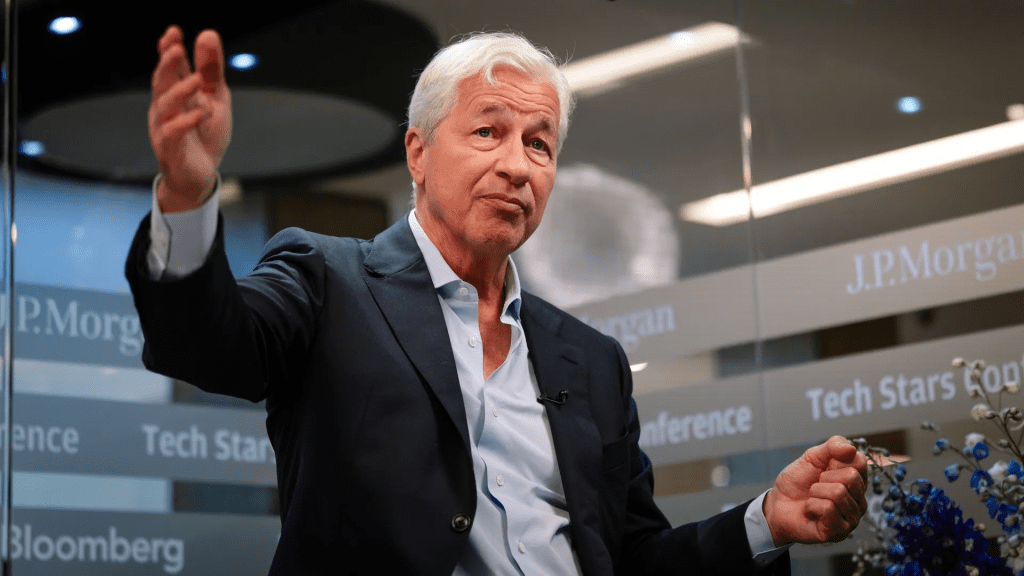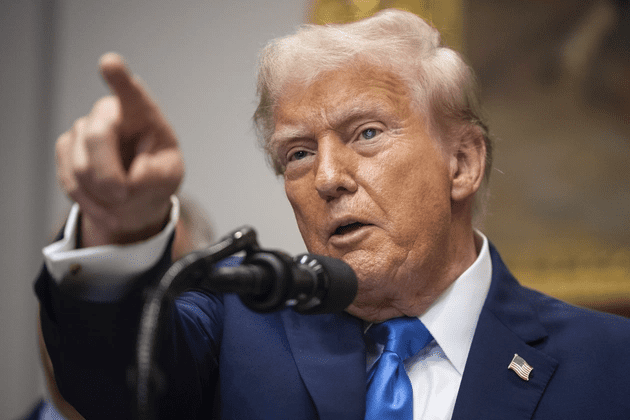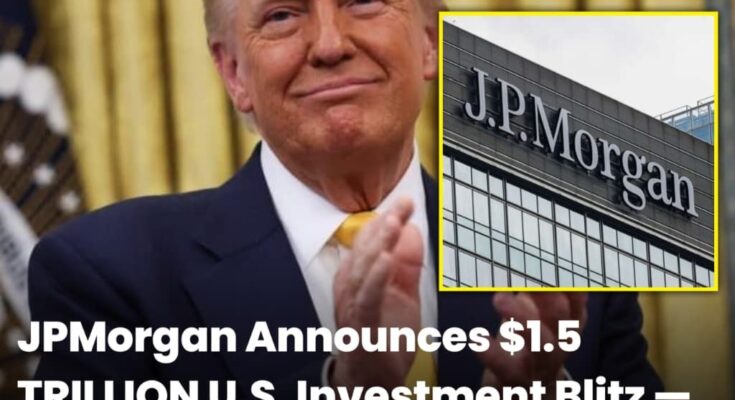JPMorgan Announces $1.5 Trillion, 10-Year Investment Push in Defense, AI, Energy, and Critical American Manufacturing
In a major announcement that’s being hailed as a milestone for America’s industrial resurgence, JPMorgan Chase has unveiled a staggering $1.5 trillion, 10-year plan to finance and invest in sectors vital to national security and long-term economic independence. The sweeping initiative, called the Security and Resiliency Investment Framework, will inject funding into industries including defense, aerospace, clean energy, advanced manufacturing, artificial intelligence, quantum computing, and cybersecurity.

According to JPMorgan, the program will combine both public and private financing mechanisms, with the bank directly committing up to $10 billion in equity investments toward U.S. companies leading innovation in these strategic areas. The rest of the $1.5 trillion figure represents lending, project finance, and capital market facilitation to mobilize private-sector capital at scale.
Jamie Dimon, CEO of JPMorgan Chase, said the move was essential for strengthening America’s self-reliance after decades of over-dependence on foreign supply chains. “It has become painfully clear that the United States has allowed itself to become too reliant on unreliable sources of critical minerals, products, and manufacturing — all of which are essential for our national security,” Dimon said. “We’re now at a moment where investing in America isn’t just smart business — it’s a strategic necessity.”

Industry analysts describe the move as one of the largest coordinated private-sector financing efforts ever announced by a U.S. bank. The targeted areas — including critical minerals, robotics, pharmaceuticals, and defense technology — are the same sectors that have been identified by federal agencies as high-risk for foreign dependence, particularly in the wake of global supply chain disruptions over the past five years.
The initiative’s timing has drawn attention because it aligns closely with the Trump administration’s broader vision of “re-industrializing America.” Many economists see it as further evidence that major financial institutions are beginning to re-embrace domestic manufacturing and technology independence — a key pillar of Trump’s economic message. Supporters say the JPMorgan plan demonstrates that America’s biggest banks are finally backing the same kind of policies that aim to bring production, innovation, and security back home.

JPMorgan stated that much of the investment will flow toward emerging U.S. companies that are building alternatives to imported components and materials. This includes domestic rare-earth mineral extraction, advanced robotics for manufacturing, and the development of next-generation AI and quantum computing systems. In addition to funding, the bank plans to provide advisory services, research partnerships, and mentorship programs to accelerate U.S. companies working in these fields.
Dimon emphasized that the initiative is not a political statement but a response to long-term economic realities. Still, his message carried a tone that resonated with the America-first movement: “We are committed to ensuring that critical industries remain in American hands. It’s about protecting the foundation of our economy and securing our future prosperity.”
Economists have called the announcement a “turning point” that could spur similar commitments from other major financial institutions. By prioritizing national security industries and high-tech manufacturing, JPMorgan’s program could lay the groundwork for a new era of strategic investment aimed at restoring industrial dominance and job creation inside the U.S.
For investors and policymakers alike, this represents more than just a financial commitment — it’s a statement of direction. JPMorgan’s $1.5 trillion bet signals that America’s private sector is preparing to lead again on the world stage, driving innovation, energy independence, and the kind of technological competitiveness that can redefine the country’s future.


